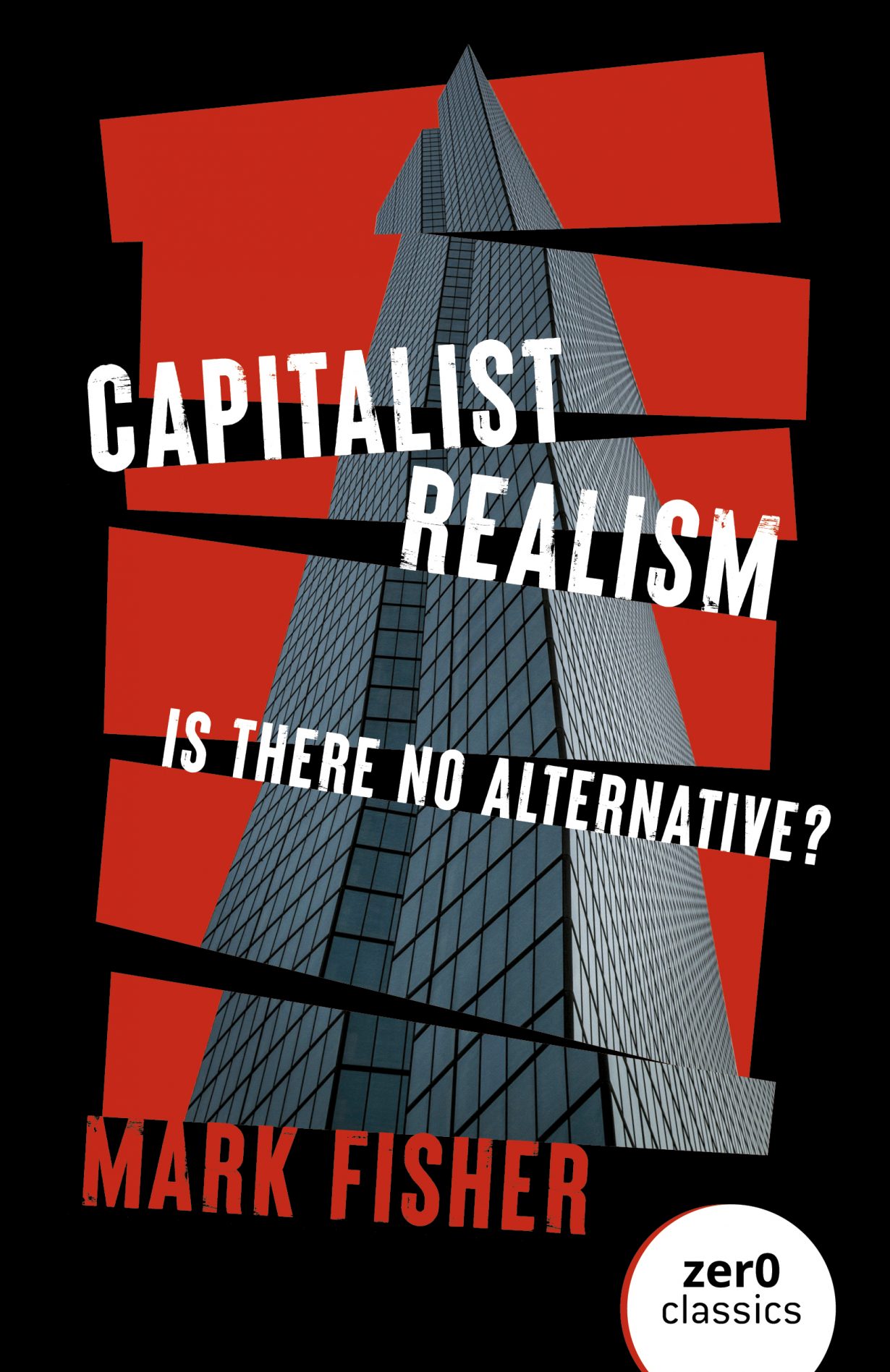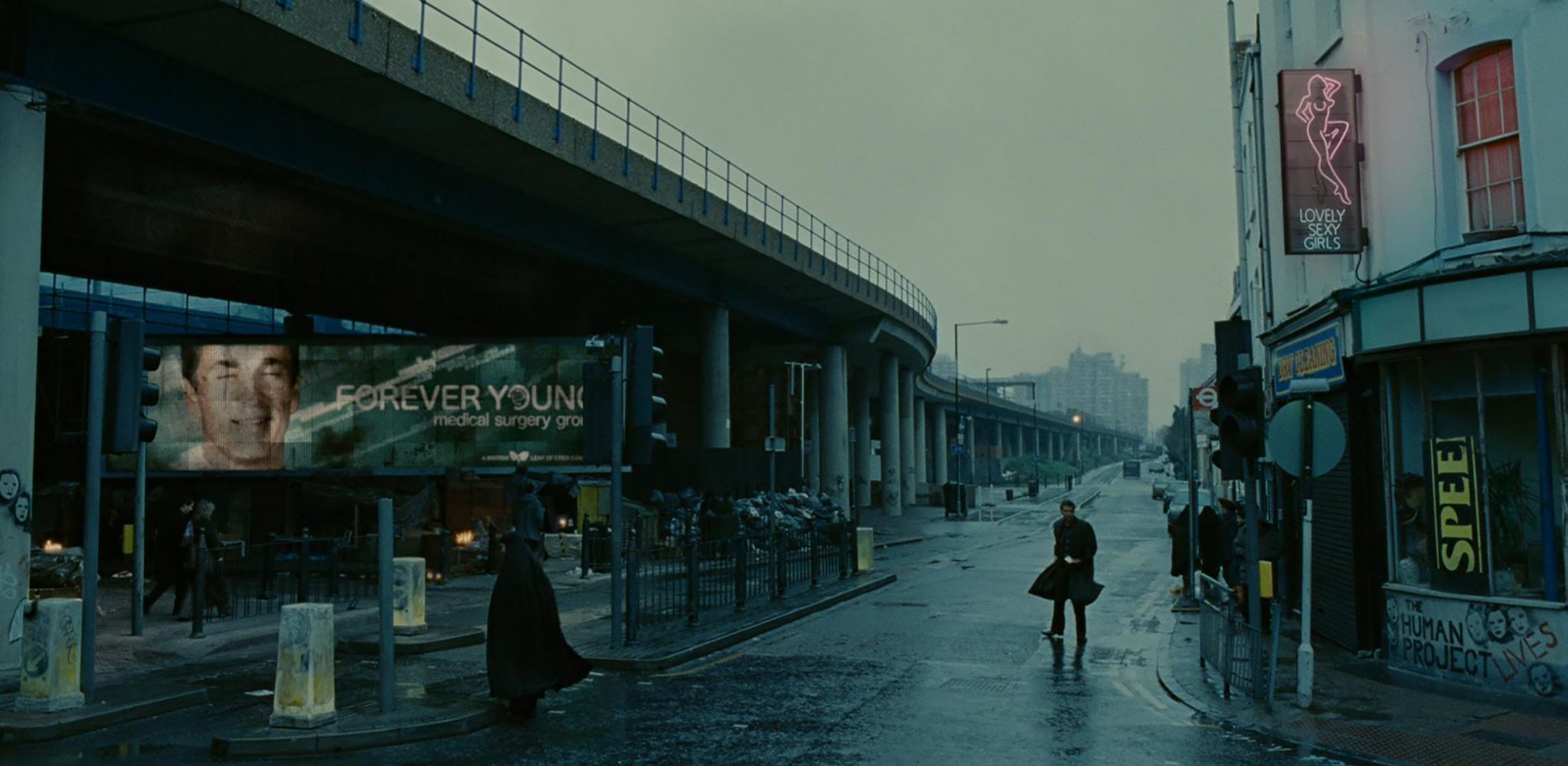The sense that there can be no alternatives continues to persist, even if they are no longer quite as confidently underwritten by neoliberal ideology
A second edition of Mark Fisher’s Capitalist Realism: Is There No Alternative? (2009) seemed inevitable by the end of the 2010s. If the steadily increasing stature and relevance of the book itself hadn’t assured it, then it would have been the wave of grief that followed Fisher’s death in January 2017, whose intensity signalled to others how important a figure he had become in contemporary cultural criticism and the theorization of political alternatives. While Fisher wrote other books (Ghosts of My Life in 2014, now appearing in a second edition also, and The Weird and the Eerie, 2016), and his work has been released posthumously (K-punk: The Collected and Unpublished Writings of Mark Fisher 2004-2016, 2018, Flatline Constructs: Gothic Materialism and Cybernetic Theory-Fiction, 2018 – Fisher’s 1999 doctoral thesis – and Post-Capitalist Desire: The Final Lectures, 2021), Capitalist Realism remains the centrepiece of Fisher’s comparatively short but indispensable contribution to British cultural theory, and probably the most succinct expression of his position.
Fisher’s complaint that contemporary culture had stopped being able to imagine alternatives to neoliberal capitalism, and that the drudgery of its working environments and banal aesthetic offerings produced an affect of combining boredom, stress, depression and stimulation-seeking he called ‘depressive hedonia,’ was familiar with the readers of his blog K-punk in the late 2000s. But it took the publication of Capitalist Realism in 2009 to crystallise this thinking and present it to a wider audience. The book was published by Zer0, an imprint Fisher had recently started with Tariq Goddard, and might only have reached fellow travellers – those shut out of what Fisher saw as the self-righteous dilution that now sat in the place once occupied by leftist politics and a genuinely adventurous, non-patronising popular culture. For Fisher, this seemingly hegemonic status quo legitimated itself as a kind of realism, the understanding being that there was – QED after Fukuyama’s end of history, the rise of New Labour and the marketisation of the BBC and higher education – no other way to organise post-industrial society and the imaginations of the individuals that would comprise it. As Fisher puts it, ‘the “realism” here is analogous to the deflationary perspective of a depressive who believes that any positive state, any hope, is a dangerous illusion.’ Such critiques were broadly familiar from the earlier critical theory that Fisher thinks with, especially Slavoj Žižek and Fredric Jameson (perhaps the two biggest influences), but Fisher was able to tune this perspective to the very particular affective milieu of the late 2000s, its discourses and cultural texts, while also bringing in reflections on mental health and the challenges facing teachers that came from personal experience. The overall result made the problems and impasses of the present bracingly recognisable.

And evidently it wasn’t just a subculture of blog-readers that found this book resonant. Over the subsequent years, it spoke to more and more of the dissatisfied, especially younger generations, who were now also being asked to accept the apparently inevitable realities of austerity and other post-recession logics. The book became a key statement for the generation that were politically engaged enough to usher in a new era of protest and to support Jeremy Corbyn’s leadership of the Labour Party in the UK (and in America, Bernie Sanders, the ‘Squad’ and the DSA). With a dark irony, the book thus parallels the commentariat’s swift pivot from its nebulous misgivings about political apathy among the young in the late 2000s to the later revulsion at its political action.
But does the book still have something to say in 2023, an altogether more turbulent time than the 2000s, and with problems that can seem more pressing (the climate crisis and the looming hard right to name just two)? Fisher opens Capitalist Realism with the 2006 film Children of Men, which portrays a dystopian society in which children are no longer born, and asks ‘what happens if the young are no longer capable of producing surprises?’ Alex Niven’s excellent introduction to this new edition responds by noting that ‘nowadays, after the series of socio-political shocks which harried the Long 2010s, we would be much less likely to talk of a world devoid of “surprises.”’ And yet the air of inevitability surrounding events – the sense that there can be no alternatives – continues to persist, even if they are no longer quite as confidently underwritten by neoliberal ideology per se. As Fisher knew, the latter was dead at the controls ever since the global financial crisis amounted to a quantum reduction in the legitimacy of unfettered financialisation. Since then, we have seen considerable state-spending during the pandemic and the strong and swift annulment of Liz Truss and Kwasi Kwarteng’s tax cuts (and their platform as a whole), all suggesting that post-austerity neoliberalism does have its red lines. Even so, such cases only further exemplify the deep-seated deference to the Big Other of markets and the economy that Fisher writes about here. We also have what might be called ‘nationalist realism’ to contend with – the ongoing assumption that political and cultural actors must constantly perform our national pride for the Big Other, and defer to its ‘legitimate concerns’ by doing everything possible to destroy immigration and critique from the wrong side.
With such events behind us, this second edition is a timely excuse to re-read Capitalist Realism. It features touching personal reflections on the author, his writing of the book and his wider career in a foreword by Fisher’s wife Zoe Fisher and an afterword by Tariq Goddard, both putting the book in a human context. Alex Niven’s introduction does the same but expands along historical lines, reflecting helpfully on the position the book has today and what it might continue to say. While some of the book’s contexts and references may have moved on, and while the ‘grey curtain of reaction’ that Fisher insists can be torn in the book’s memorable final lines might not quite be as firmly lowered over the ‘horizons of possibility’ as it was in 2009 – he is one of the people partly responsible for this – its underlying analysis of how politics and culture converge on the same stagnation remains of great importance to those of us continuing to wonder whether there might not be a better way.
Mark Fisher, Capitalist Realism (New Edition), Zer0 Books
